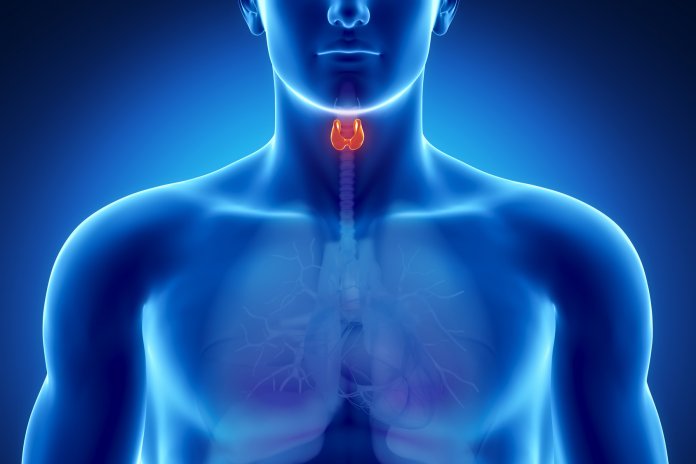Biotin is a wildly popular supplement these days. Also known as vitamin B7 and coenzyme R, biotin is found naturally in many foods, such as eggs, milk, nuts, and legumes. As it may help to ameliorate thinning hair, and strengthen nails, it’s no wonder that many people have taken to it.
Sounds great, right? However, there’s a problem with taking a biotin supplement: it may lead to significantly inaccurate results on a thyroid function test. This is because nearly all of the high-tech machines that are used to perform thyroid testing use biotin as a part of the testing procedure. Specifically, these tests depend on the “biotin-streptavidin” interaction” to arrive at the results.
The most common test used to assess thyroid function is the thyroid stimulating hormone test, or TSH. Depending on the technique used in the laboratory, taking a biotin supplement can cause TSH levels to read too low, or too high. This is a huge problem because these inaccurate results can result in a misdiagnosis of hypothyroidism or hyperthyroidism, and it goes without saying that receiving treatment for a condition you do not have can be extremely dangerous. On top of that, it may leave an actual condition undiscovered and untreated.
What makes matters worse is that many patients may not tell their doctors that they are taking biotin. Unless they are specifically asked, they may not think to mention it, since it is not technically a medication, and may not register as something important to report to a physician. The vast majority of physicians are unaware of this interaction… so you cannot depend on them to bring it up.
As Dr. Carol Greenlee, an endocrinologist practicing in Grand Junction, Colorado, told Endocrine News:
“I saw somebody just yesterday who has had an extensive workup for hyperthyroidism. A lot of her tests look like she has Graves, but she is taking massive doses of biotin. She probably doesn’t have any thyroid problem. We could be treating people for Graves’ disease who don’t have it, and that’s really scary.”
That is indeed frightening. If you’re taking biotin — or any supplement at all, no matter how trivial it seems — be sure to report it to your doctor. It’s crucial to keep your health professionals updated on what you are putting into your body. Failing to do so could put you at serious risk for misdiagnosis, and for possible drug interactions.
If you are taking a biotin supplement, the good news is that you do not need to stop it entirely. Biotin is a water soluble substance, so it washes out of the bloodstream fairly quickly. I recommend that any patient taking biotin should stop taking it at least three days prior to getting their blood drawn for lab testing.
Beyond Biotin:
As discussed above, biotin is widely used in large doses to treat thinning hair… but it is certainly not the only tool in the toolbox for hair loss. There are many other ways to naturally combat the process of thinning hair without a biotin supplement.
Ironically, hair loss can caused by a thyroid imbalance — it may result from both hypothyroidism and hyperthyroidism. If you are experiencing hair thinning or loss, it’s important to get your thyroid levels checked: without a biotin supplement skewing the results.
Hair loss can also be a result of a hormonal imbalance. This effect is often seen in women experiencing menopause, or those starting or stopping a hormonal medication, such as an oral contraceptive. One supplement that may be particularly helpful for female hormonal imbalances is diindolylmethane, also known as DIM. Another supplement to consider if you are suffering from a hormonal imbalance is saw palmetto. This may be effective especially if testosterone is an issue.
Another big factor in hair loss is stress. In my practice, I have seen people who are extremely stressed lose nearly all of their hair. I’ve also seen their hair growth recover once the stress issue is resolved. If you are chronically stressed, it’s important to get to the root of your stressors, because along with potentially causing hair loss, stress may lead to inflammation throughout the body, which can allow all sorts of diseases to take root.
Along with making sure you’re getting enough sleep, eating well, and exercising regularly, taking maca root extract may help alleviate stress, especially if there is a hormonal connection. Rhodiola is another herb that may help — and it’s personally one of my favorite stress-soothing herbal remedies.
A few other helpful supplements for hair loss include copper, magnesium, zinc, and methylsulfonylmethane, also known as MSM. Talk to your physician about which one (or ones) may be appropriate for your particular state of health. There are certainly many options in addition to biotin to tackle this common problem: options that won’t skew lab test results.
– Dr. Joshua Levitt


